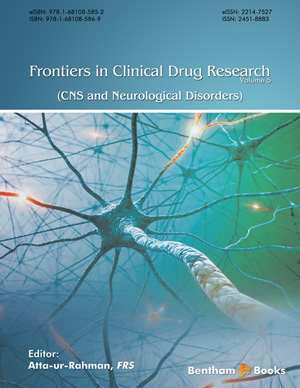Abstract
Spinal cord injury (SCI) is a devastating event that often leads to profound disability. Traditionally, the treatment for such injury consisted of steroids, spinal decompression and stabilization surgery, and physical therapy. Despite all these treatments, however, prognoses for meaningful functional recovery remained grim. Recently, laboratory-based advancements in our understanding of central nervous system injuries at the cellular and molecular levels have ushered in new drug treatment strategies for neuroprotection and regeneration following SCI. Emerging strategies include pharmacotherapy to reduce spinal cord ischemia, cellular excitotoxicity, demyelination, and free radical-mediated peroxidation and ensuing cell death. In this chapter, we review traditional avenues of drug therapy following traumatic SCI including methylprednisolone, naloxone, and monosialotetrahexosyl (GM-1) ganglioside. We also discuss pharmacotherapy options currently under investigation for the treatment of SCI, with attention given to those that are actively under human clinical trials: riluzole, minocycline, Rho protein antagonist, magnesium chloride in polyethylene glycol formulation, granulocyte colony stimulating factor (G-CSF), and fibroblast growth factor (FGF), and lithium. Far more work remains to be done to further characterize the efficacy, safety, and practicability of these pharmaceutical therapies.
Keywords: Antioxidation, Blood spinal cord barrier, Corticosteroid, Excitotoxicity, GM-1, Gacyclidine, Ganglioside, Granulocyte colony stimulating factor, Growth factor, Immunomodulation, Lipid peroxidation, Lithium, Magnesium, Methylprednisolone, Minocycline, NASCIS, Naloxone, Neuroprotection, Nimodipine, RISCIS, Rho antagonist, Riluzole, Spinal cord injury, Thyrotropin releasing hormone, Tirilazad.






















